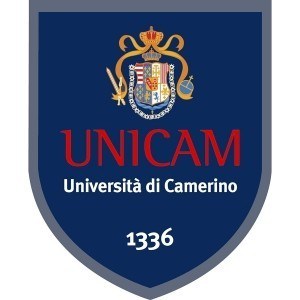Photos of university / #theuniversityofsheffield
The MSc in Health Informatics at The University of Sheffield is an innovative and comprehensive programme designed to equip students with the essential skills and knowledge needed to transform healthcare delivery through information technology. In an era where digital solutions are increasingly integral to healthcare systems worldwide, this programme offers a unique opportunity to explore the intersection of healthcare, technology, and data management. The course curriculum covers a broad spectrum of topics, including health data analytics, electronic health records, digital health innovations, health information systems, and the ethical and legal considerations surrounding health data. Students will develop practical skills through hands-on projects and case studies, preparing them for the complex challenges faced in modern healthcare environments. The programme is suitable for graduates from health, computer science, IT, or related disciplines seeking to advance their careers in health informatics, health information management, or digital health development. Taught by experienced academics and industry professionals, the course combines theoretical foundations with practical application, ensuring graduates are well-prepared for roles in healthcare organizations, government agencies, and technology companies. The programme also emphasizes the importance of patient-centered care, data security, and the responsible use of health information. With a blend of lectures, seminars, group work, and independent research, students are encouraged to develop critical thinking and problem-solving skills relevant to the rapidly evolving health informatics field. The University of Sheffield's strong links with the healthcare industry provide excellent networking opportunities and potential for collaborative projects. Graduates of this MSc programme will be well-positioned to lead digital health initiatives, improve healthcare outcomes, and shape the future of healthcare technology on a global scale.
The MSc in Health Informatics at the University of Sheffield offers a comprehensive curriculum designed to equip students with the essential knowledge and practical skills required to improve healthcare delivery through the innovative use of information technology. This program combines theoretical foundations with applied training, preparing graduates to address the complex challenges faced by modern healthcare systems. Students will explore a wide range of topics, including health information systems, clinical data management, health data analytics, and the principles of designing user-centered healthcare technologies. Emphasis is placed on understanding how digital tools can enhance patient care, streamline clinical workflows, and support decision-making processes in diverse healthcare settings. Throughout the course, students will engage in real-world projects, leveraging current technologies such as electronic health records (EHR), telemedicine, and health data visualisation. The program also covers critical issues such as data security, privacy, and ethical considerations in health informatics. With a strong focus on interdisciplinary collaboration, students will work alongside healthcare professionals, IT specialists, and policymakers to develop innovative solutions that improve health outcomes. The curriculum is delivered through a combination of lectures, workshops, group projects, and hands-on training, ensuring students gain practical experience in using cutting-edge health informatics tools. Graduates of the MSc in Health Informatics will be well-prepared for careers in healthcare technology management, clinical informatics, health data analysis, and health information systems consulting, among other roles. The program aims to foster critical thinking, technological proficiency, and a deep understanding of healthcare systems to facilitate meaningful contributions to the evolving digital landscape of healthcare.
Qualifications and entry requirements for the MSc in Health Informatics at The University of Sheffield typically include a relevant undergraduate degree such as in health, social sciences, computing, information technology, engineering, or related disciplines. Applicants are expected to demonstrate a good 2:1 (or equivalent) honours degree or higher in a pertinent subject. If English is not the applicant's first language, evidence of proficiency in English, such as an IELTS score of 6.5 or equivalent, is usually required to demonstrate ability to undertake postgraduate study in an English-speaking environment. In addition to academic qualifications, relevant work experience in healthcare, technology, or data management may be considered advantageous but is not always mandatory. The programme is designed to be accessible to a wide range of backgrounds, so applicants from diverse disciplines are encouraged to apply. Applicants are typically required to submit a personal statement outlining their motivation for pursuing the MSc in Health Informatics, their relevant experience, and career aspirations. References are also generally part of the application process, providing insights into the candidate's academic or professional capabilities. The programme may also assess cognitive abilities and motivation through interview processes or supplementary assessments if necessary. The core curriculum encompasses modules in health data management, health information systems, clinical decision support, data analytics, and healthcare policy. Students are expected to have basic numerical skills and computer literacy to succeed in the programme. The programme aims to prepare students for careers in health informatics, health IT management, clinical data analysis, and policy development in healthcare settings. Admission requirements are subject to change, and applicants are advised to consult the official university admissions pages for the most current information. The university values diversity and encourages applications from international students, providing additional guidance for visa requirements and international qualifications. The selection process seeks to identify candidates with a solid academic foundation, relevant interest in health informatics, and the potential to contribute to the evolving field of healthcare technology.
The University of Sheffield offers a range of funding options for students enrolled in the Health Informatics program. International students are advised to explore scholarships such as the International Undergraduate Pershing Scholarships and the Merit-based International Scholarships, which provide partial tuition fee waivers. Additionally, students can apply for government-sponsored financial aid programs, including loans and grants available in their home countries, which can be used to finance their studies in the UK. The university also provides information on external funding opportunities, including industry-sponsored bursaries, research council grants, and private scholarships tailored to health and informatics disciplines. For UK students, standard government student loans offered through Student Finance England can cover tuition fees and provide maintenance funding. The university's financial services department offers guidance on managing living costs and accessing emergency funding if necessary. Some students combine part-time employment opportunities offered on campus or in the local area to supplement their income during their studies. The cost of the program, including tuition fees, varies depending on the student’s residency status and the specific course components, but generally, UK students benefit from lower fees compared to international students. It is recommended that prospective students consult the university’s official website and the dedicated funding pages for the most current information on tuition fees, scholarship deadlines, and application procedures. The university also encourages early application for funding to ensure students secure the financial support they need. Furthermore, there are occasional employer sponsorships and professional development grants available for students pursuing postgraduate studies in health informatics. Overall, the university provides comprehensive financial support options designed to make studying health informatics accessible and affordable for a diverse student body, including detailed advice on how to apply for each funding source and tips for planning finances throughout the course duration.
The MSc in Health Informatics at the University of Sheffield is a comprehensive postgraduate programme designed to equip students with the essential knowledge and skills needed to develop, implement, and evaluate health information systems. The course combines principles from computer science, healthcare management, and data analysis to prepare graduates for careers in the rapidly evolving field of health informatics. The programme covers a wide range of topics including health data standards, electronic health records, healthcare technology, data analytics, and information governance. Students will benefit from hands-on experience through practical projects and case studies that simulate real-world challenges in healthcare settings. The curriculum also emphasizes the importance of user-centred design and the ethical aspects of health data management, ensuring graduates are capable of making informed decisions that prioritize patient safety and confidentiality. The course is suitable for individuals with backgrounds in health sciences, computer science, information management, or related fields. It provides opportunities for interdisciplinary learning and professional development, often involving collaboration with healthcare providers and industry partners. The programme is delivered through a combination of lectures, seminars, tutorials, and practical workshops, with assessments including coursework, exams, and project work. Graduates of the MSc in Health Informatics are well-placed to pursue roles in health IT departments, clinical informatics, health data analysis, and policy development within healthcare organizations, government agencies, and private sector companies. The University of Sheffield's strong links with healthcare providers and technology companies enhance the practical relevance of the programme, and students may have access to networking events and career support services. This master's degree is particularly relevant in today’s healthcare landscape, where digital health transformation is a key priority worldwide. By completing this programme, students will gain a deep understanding of how information technology improves patient care and operational efficiency, making them valuable contributors to the future of healthcare innovation.






